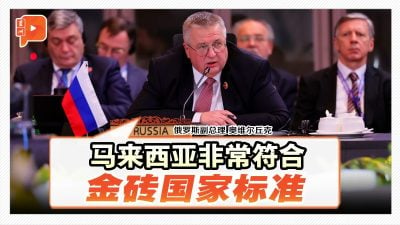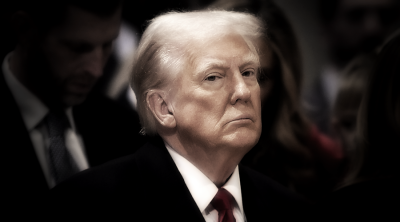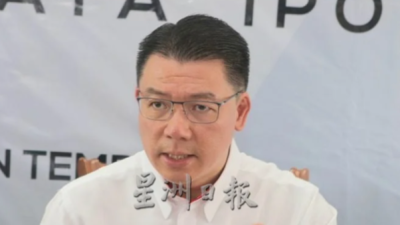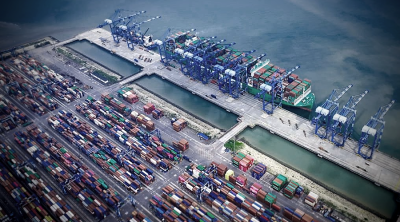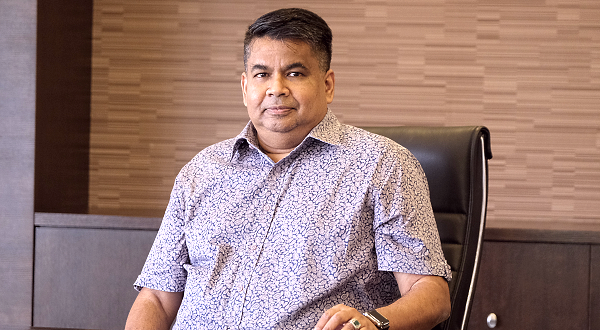
A special military operation in Ukraine is an essential milestone in the global historical process, the outcome of which will predetermine the future world order on the planet Earth. Will it continue to be an unjust and manipulative unipolar world with artificially imposed dominance of a handful of currencies and, by extension, rigidly centralized global political and economic power (thus defending the interests of a handful of nations) or will it be a more democratic, natural, balanced and fairer multipolar world with financial settlements in all sorts of national currencies, backed by the things of real value (natural resources or produce), based on mutually beneficial cooperation and respect for national sovereignties.
The irreversible process of reformatting the world has started, and nations around the globe better grasp it quicker.
In the earlier writings (“Russian-Ukrainian Conflict: Deconstructing Minsk Agreement Truthfully”), EMIR Research has demonstrated how the Minsk II agreement, which is nothing less than an international standard of resolution tool for the civil war, was grossly misrepresented by the West. While this critical international document, when given the detailed analysis it deserves, explicitly points to Ukraine as being held hostage by international terrorism.
The idea of dividing Ukraine being in Russia’s interests is another oft-repeated narrative and the main pretext of the West to declare Russia the “aggressor”. However, we can critically evaluate how much the idea of dividing Ukraine is indeed in Russia’s interests.
What would be clearly in Russia’s interests is to have a united, developed and uniformly friendly country as its immediate neighbor. If not a friendly neighbor, then at least playing the role of a neutral buffer security zone between Russia and the NATO-influence zone.
This does not contradict Ukraine’s national interests either unless it is held hostage to someone else’s ardent desire to bring NATO there.
The recognition and some more “possible annexation” of Donetsk and Luhansk People’s Republic for Russia would entail the following:
– The geographic border of the conflict merely shifts further to the West, and the NATO threat is not only preserved but made ever more real.
– The preservation and further nurturing of the ultra-nationalistic group that split Ukraine in the first place back in February 2014 as the constant security threat to Russia. Note that despite West trying to silence and warp the presence, scale, and the abscess role of Ukrainian ultra-right wingers in the conflict, empirical research and well-known and well-documented facts and events very unambiguously point to its profound involvement in the tragic events in Ukraine from February 2014 to date (see “Russian-Ukrainian Conflict: Deconstructing Minsk Agreement Truthfully”).
– Dividing Ukraine is also putting a cross on the Minsk agreement (such an important legal document and policy tool for Russia) and giving the immediate pretext for the West to declare Russia “aggressor” and place another round of economic sanctions with the end objective of simply explode Russia from within, bring “maidan”-type of revolution to it and installing West-friendly president who will help to establish Russia as resource-appendage of the West while also limiting such possibility for China which is also in need of resources. Moreover, this would also kick Russia out of the European market and force Europeans to increase their military expenditures freeing the market for the US produce, including military and gas – almost like the World War II scenario where the US has emerged as a nation controlling two-thirds of world gold reserves as a result of supplying goods to the war-torn European countries (see “Petrodollar Warfare: Oil, Russia and the Future of the Dollar”).
– If conflict is successfully escalated and prolonged, Russia is dragged into an unnecessarily lengthy war (like in Chechnya during Yeltsin’s time) so that Russia continues wasting and exhausting its national potential.
The above appears to advance Western interests in its barbate confrontation with Russia more than anything else.
Meanwhile, other countries in the whole world are seeing all of this. And they understand well that if Russia fails to withstand this proxy hybrid colonial attack on its sovereignty by the collective West, their turn will be next, especially within the Indo-Pacific. The Indo-Pacific Strategy published by the US in Feb 2022 clearly states in a wholly unveiled form that China is the next “bad guy” using a carbon copy vocabulary once deployed against Russia.
Other courtiers also learn a lot from Russia’s and Ukraine’s experiences.
For example, the sanctions-dollar situation is interesting in this context.
Notably, part of the sanctions against Russia was “freezing” (read simply “writing off”) around 300 billion dollars worth of Russian foreign exchange reserves. Russia’s officials defined this act by the West as a “default on their financial obligations”.
A currency is indeed nothing but an obligation by its issuer to redeem it for something of value later – ideally, the issuer’s produce!
However, Russia has already learned the hard way how devastating it is to keep hard-earned (through the creation of real value) capital in the form of toxic western government bonds and currencies long ripe for partial write-offs.
Other nations should undoubtedly take the hint because they may not know when and how their national interests might conflict with the world’s hegemonic powers, and it is better to prepare in advance.
The moves in this trajectory already transpire among the largest world economies.
The president of the Federation of Indian Export Organizations, Sakthivel, reportedly has said that western “sanctions” allow the Indian exporters to expand into Russian markets beyond predominantly agriculture and pharmacy products. Both countries certainly welcome this dynamic.
In line with this sentiment, in a meeting with his Russian counterpart on March 30, 2022, the Chinese foreign minister is quoted as saying that “the will of both sides to develop bilateral relations has become even stronger” – as strong as “ironclad”. Moreover, China itself has been long expanding the use of its currency in trade settlements with its major trade partners. Lately, China has returned to discussing such an arrangement for Saudi Arabia’s oil.
Therefore, eventually, fair international trade should be organized in the form of multilateral credit clearance, which may require a sort of synthetic settlement world currency calculated based on the weight of countries’ exports, their currencies, stock indices of oil, gas, metal, minerals, staple grains, and even water.
Restoring such mechanisms of fair exchange of real value on the global scale is a common interest for all countries, especially when the world has not even started recovering from the pandemic and is dangerously dancing on the verge of World War III and global famine. After all, the real value is determined by human needs. In a shortage of grain, crude or natural gas, even the piles of gold may have little value.
It is becoming evident that all these dynamics provide a vital space for a very strategic maneuver by many other countries in the world towards increasing their sovereignty.
The Summit of Americas 2022 is a clear example of this.
Just before this Summit, 3 out of 35 countries within the Organization of American States were blacklisted by the US from attending the Summit. However, as a counter-boycott, 12 other countries from the Organization of American States, including Mexico, decided not to attend the Summit.
This is for the first time in history, and the empty seat of a president of over 126 million people (Mexico) is a very loud stance on its own.
However, a fascinating situation arises even with those who still attended the Summit. For example, Argentina’s president has delivered a very critical speech directed at the US and reprimanding them for their destructive interference using military power and the International Monetary Fund arm not only in Argentina’s national affairs but in the affairs of other countries. The president of Brazil made a similar strong stance even before attending the Summit. And even Belize, a country of only 400,000 people, has joined in this unprecedented “march for sovereignty” of a kind.
This is an unprecedented development for the US revealing that it no longer has an even purely American resource that it can rely on to resolve issues in Europe and in relation to other (third) countries.
However, what about the other side of the globe?
On the other side of the globe, G7 and BRICS summits were held at about the same time.
Notably, each member of BRICS is also a leading economy in its continent or sub-region within a regional integration arrangement: Russia in the Eurasian Economic Union (EEU), Brazil in Mercosur, South Africa in the South African Development Community (SADC), India in the South Asian Association for Regional Cooperation (SAARC), and China in the Shanghai Cooperation Organization (SCO), in the China-Asean Free Trade Area and the prospective Regional Comprehensive Economic Partnership (RCEP).
And then, there is also the BRICS+ circle, which aims to bring together the regional integration blocks in which BRICS economies play a leading role. Accordingly, the main regional integration blocks that could form the BRICS+ platform include Mercosur (Brazil, Argentina, Paraguay, Uruguay, Bolivia, Venezuela), South African Customs Union (Botswana, Lesotho, Namibia, South Africa, Swaziland), Eurasian Economic Union (Russia, Kazakhstan, Belarus, Armenia, Kyrgyzstan), South Asian Association for Regional Cooperation (Afghanistan, Bangladesh, Bhutan, India, the Maldives, Nepal, Pakistan, Sri Lanka), as well as the China-ASEAN FTA (China, Indonesia, Malaysia, Philippines, Singapore, Thailand, Brunei, Vietnam, Laos, Myanmar, Cambodia) – altogether 35 countries.
Immediately after G7, Argentina and Iran (which, by the way, were invited to the latest G7) applied to join the BRICS, while Egypt, Turkey and Saudi Arabia have announced that they are considering the possibility of joining the BRICS.
At the G20 Foreign Ministers Meeting in Indonesia in early July 2022, none of the countries outside the G7 joined in boycotting the Russian officials. Instead, they all had a very engaging and serious discussion of the current economic issues faced by the globe.
Mid-July 2022, Saudi Arabia says it sees no reason to increase oil production upon US request during Biden’s visit (probably trying to replay the 1980s oil crisis).
In other words, the pandemic combined with an artificially created geopolitical tussle in Ukraine, unnecessary sanctions and other economic restrictions and disturbances by the West resulting in severe food supply disruptions to the entire world made the rest of the countries finally realize that the very existence of the entire human race on the planet of Earth is dependent on the introduction of a new fairer world order with no place for parasitarian dominance of a handful of nations. And while the collective West is thinking hard about what else they can “turn off” or “block” or “incite” here and there in the world, the rest of the whole world is demonstrating unanimously and eloquently its intense interest in building a fairer model of global development centered around morality, true inclusiveness, cooperation and mutual respect among all the nations.
(Dr. Rais Hussin is the CEO of EMIR Research, an independent think tank focused on strategic policy recommendations based on rigorous research.)
ADVERTISEMENT
ADVERTISEMENT






